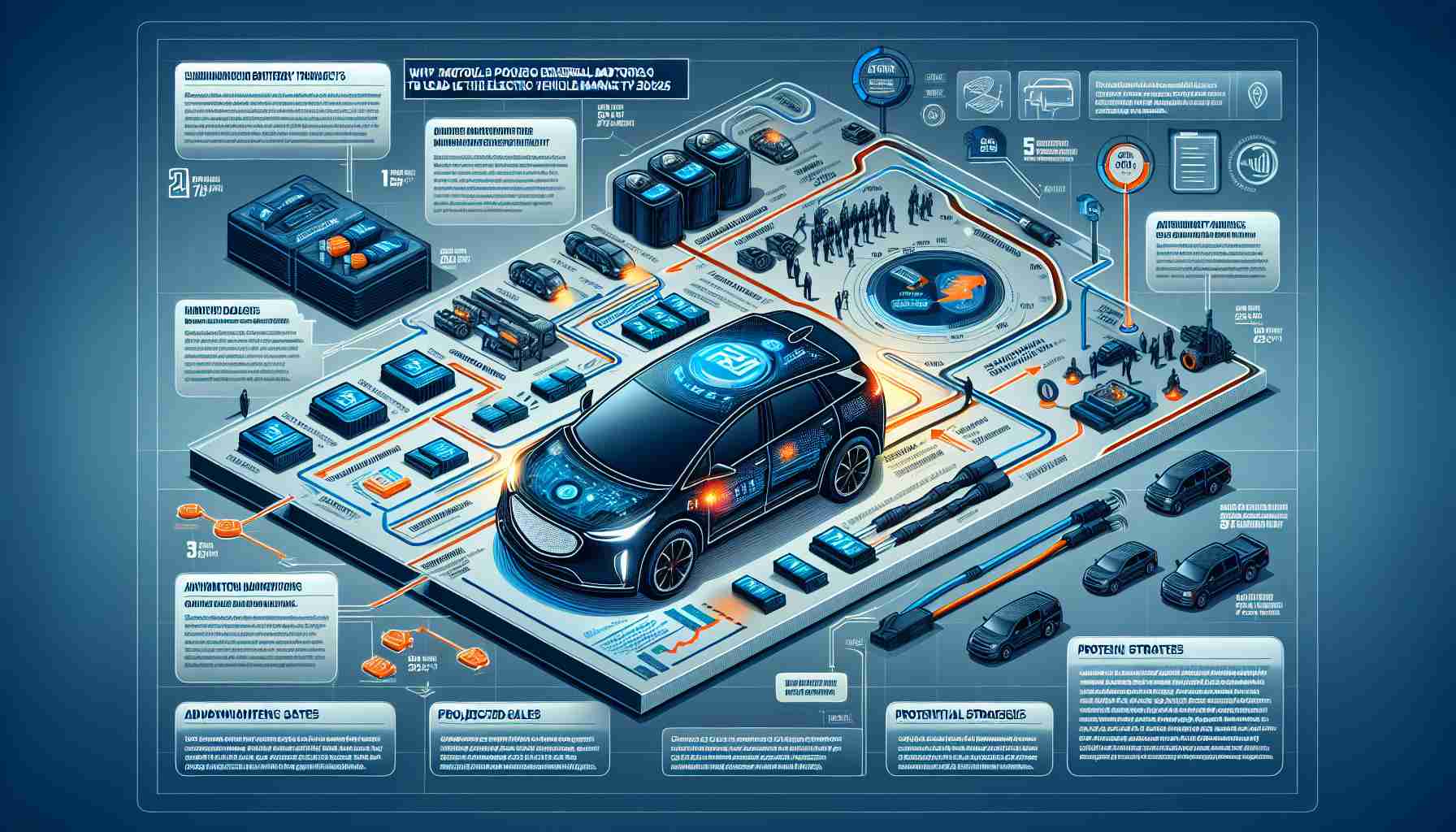- General Motors is strategically investing in the electric vehicle (EV) battery market, aiming to be a leader in the industry.
- The Promoting Resilient Supply Chains Act is strengthening the domestic supply chain for EV components like batteries.
- Average global EV battery prices are expected to drop to $90 per kWh by 2025, making EVs more affordable.
- The EV battery market is projected to grow from $148.34 billion in 2024 to over $923.08 billion by 2037.
- GM’s joint venture with LG Energy Solution and a partnership with Vianode for synthetic graphite are enhancing its battery production capabilities.
- Despite some skepticism, GM’s push towards electric trucks and SUVs indicates their commitment to capturing market share.
As the world shifts towards electric vehicles (EVs), General Motors (NYSE:GM) is positioning itself as a significant contender in the EV battery arena. The Promoting Resilient Supply Chains Act is paving the way for a stronger domestic supply chain, emphasizing the importance of localizing vital components like batteries and microchips. The rapid decline in battery prices, driven by plummeting metal costs—like lithium and cobalt—signals a major transformation in the industry. Forecasts predict that the average global EV battery price will drop to $90 per kilowatt-hour (kWh) by 2025, potentially making electric cars as affordable as their gasoline counterparts.
With the EV battery market projected to skyrocket from $148.34 billion in 2024 to over $923.08 billion by 2037, the demand for batteries is set to surge. GM is at the forefront of this growth, leveraging its joint venture with LG Energy Solution through Ultium Cells to produce cutting-edge batteries. Additionally, GM’s multi-billion dollar deal with Norway’s Vianode for synthetic graphite anode materials is expected to solidify its market position and enhance supply chain stability.
Despite a cautious outlook from some analysts, GM’s strategic investments in EVs and battery technology, coupled with increasing sales of electric trucks and SUVs, showcase its commitment to capturing market share. Ranked 2nd among the best EV battery stocks to buy in 2025, GM is not just a player; it’s a titan ready to revolutionize the EV landscape.
Takeaway: General Motors is not only meeting the demands of today’s EV market but is also set to lead the charge into the future. Don’t miss the opportunity to watch this giant transform your driving experience!
The Future of Electric Vehicles: How GM is Shaping the EV Battery Market
As the automotive industry rapidly transitions to electric vehicles (EVs), General Motors (NYSE: GM) is making significant strides in establishing itself as a leader in the EV battery sector. With recent developments in policies, market forecasts, and technological innovations, GM is poised to revolutionize the landscape of electric mobility.
Key Trends and Innovations
1. Battery Technology Advancements: GM’s partnership with LG Energy Solution through their joint venture, Ultium Cells, is crucial in developing advanced battery technologies. These lithium-ion batteries promise increased energy density and faster charging times, enhancing the overall EV experience.
2. Sustainability Efforts: The use of synthetic graphite from GM’s deal with Norway’s Vianode will not only improve battery performance but also support sustainability in battery production. This partnership aligns with GM’s commitment to creating a more eco-friendly supply chain.
3. Market Integration: GM is focusing on localizing battery production in the U.S., which will help reduce dependency on foreign sources and strengthen the domestic supply chain. This aligns with initiatives like the Promoting Resilient Supply Chains Act.
Projections and Market Analysis
– Decline in Battery Prices: By 2025, as average global EV battery prices are expected to drop to $90 per kWh, this will make EVs financially competitive with traditional internal combustion vehicles. This price reduction is primarily driven by decreasing metal costs including lithium and cobalt.
– Market Growth: The EV battery market is projected to experience explosive growth, increasing from $148.34 billion in 2024 to an astonishing $923.08 billion by 2037. This surge in demand is indicative of a broader shift towards electrification across the automotive sector.
Important Questions Related to GM’s EV Strategy
1. What factors are driving the decline in EV battery prices?
– The decline is largely attributed to the plummeting costs of metals like lithium and cobalt, which are critical raw materials in battery production. Innovations in mining and material processing also play a significant role in achieving cost efficiencies.
2. How is GM ensuring the stability of its battery supply chain?
– GM is investing heavily in local production facilities and forming strategic partnerships with suppliers such as Vianode. Their focus on sourcing materials domestically helps mitigate risks associated with international supply chain disruptions.
3. What is GM’s strategy to compete with other EV manufacturers?
– GM aims to differentiate itself through high-performance battery technology, a robust lineup of electric trucks and SUVs, and ongoing investments in research and development. By aligning its strategic objectives with current market demands, GM seeks to strengthen its position as a market leader.
Takeaway
General Motors is not just adapting to the current demands of the EV market; it is actively engineering its future by investing in innovative technologies and sustainable practices. As battery prices decrease and the EV market expands, GM’s position promises to enhance the future driving experience for consumers.
For more information about General Motors and its initiatives, visit GM’s official website.



















